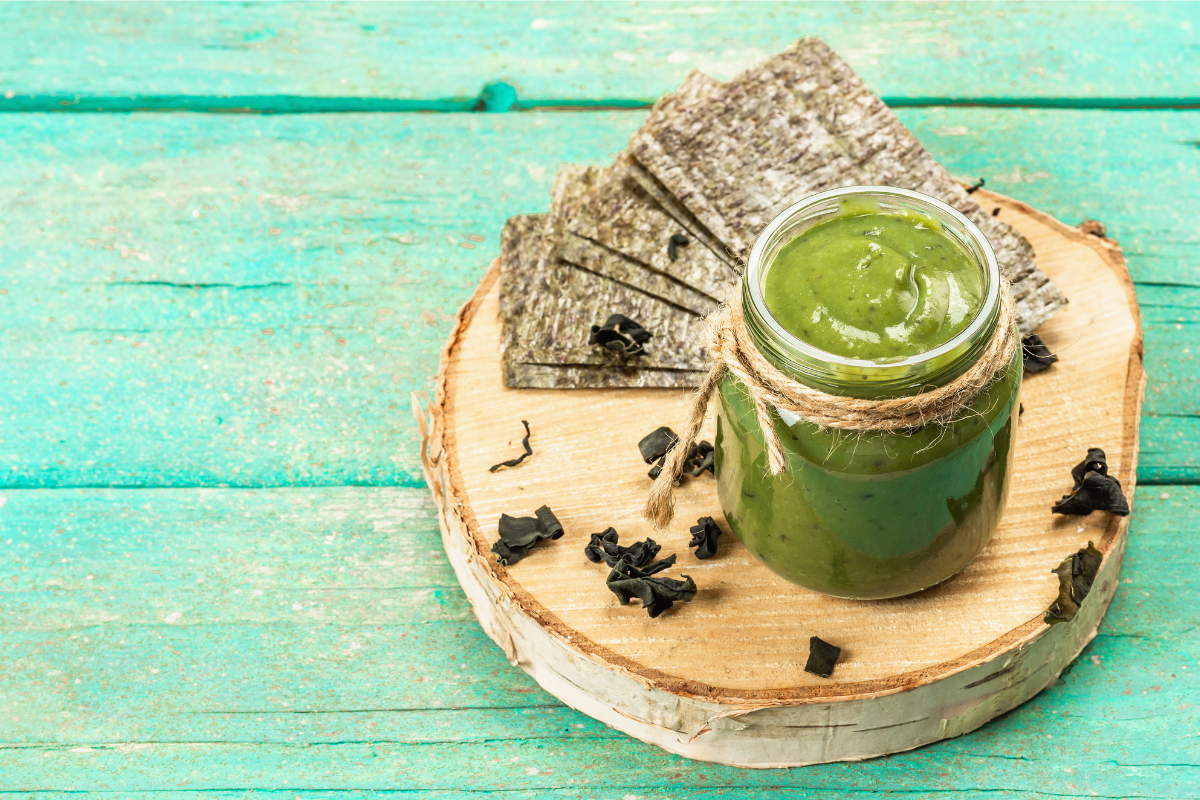In this blog post, we will be discussing everything you need to know about sea kelp. From what it is - to its benefits, this blog post is your introductory guide to this superfood from the ocean.
Sea vegetables have gained a lot of popularity lately. Of all the sea veggies available out there, kelp has managed to quickly make its way into mainstream cuisine. While sea kelp is still relatively new to the world, it’s been a part of Asian and Oriental cuisine for centuries.
What is sea kelp?
Sea kelp, or just kelp, is a type of large brown algae, usually found in the shallow waters of the sea or near the shore. It’s very likely that you have probably encountered it during your time on the beach. Apart from its nutritional benefits, kelp also plays a major part in marine biodiversity. Kelp grows in huge masses which acts as a shelter and also as food for the marine life living underwater. The growth speed of kelp is unrivaled. It can grow up to 300 feet in a year. The reason why kelp is usually referred to as the ‘superfood from the ocean’ is because of its nutritional profile. It contains ten times more calcium than milk and is richer in Vitamin C than oranges.
Benefits of kelp
The benefits of kelp are quite expansive, hence the title ‘ocean superfood’. We've listed a few of them for you below.
Sea kelp is a goldmine for nutrients. It’s a rich source of Vitamins C, K, A, B12, and minerals like iron, calcium, and magnesium. Anyone suffering from a deficiency of any of these nutrients can find a simple solution in kelp.
Kelp is regarded as one of the greatest sources of iodine, which helps in regulating thyroid function. Hypothyroidism can severely affect one’s metabolism. Moreover, iodine deficiency can lead to conditions like goiters as well. Just note that kelp should be avoided if you’re dealing with hyperthyroidism since that is caused by an excess of iodine intake.
As mentioned earlier, sea kelp contains ten times more calcium than milk, making it an excellent source of calcium. Calcium is vital for bone-health development, especially among women. People who are on medication for thyroid regulation are also advised to keep their calcium intake in check. Kelp is the one-stop solution to tackle two problems at once - regulating thyroid function and also supporting bone health.
Kelp has been found to contain a fiber known as alginate. Studies have suggested that this fiber helps in preventing the absorption of fat in the gut by 75%. It is now being researched to develop into a weight loss supplement.
Iodine deficiency can also cause severe hair fall issues. Consuming sea kelp can help you deal with hair fall. And let’s not forget that it contains essential vitamins and minerals that your hair needs to stay healthy.
Final thoughts
Kelp is not only a boon for marine life but for humans, too. Sea kelp can be consumed directly or in the form of tablets. One piece of advice though: water pollution and bad manufacturing processes can sometimes lead to the sale of contaminated kelp so make sure you’re consuming kelp that was obtained organically and has been tested for arsenic.

